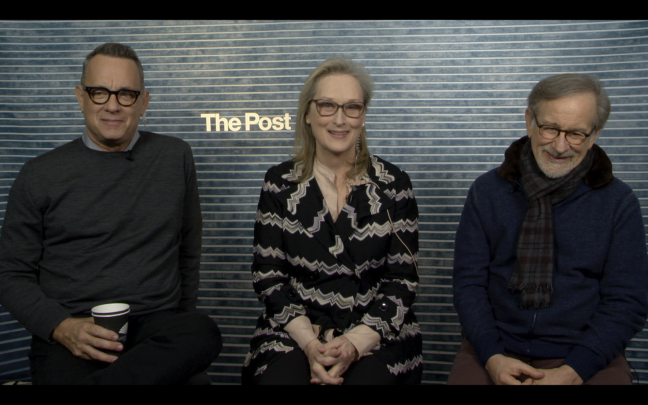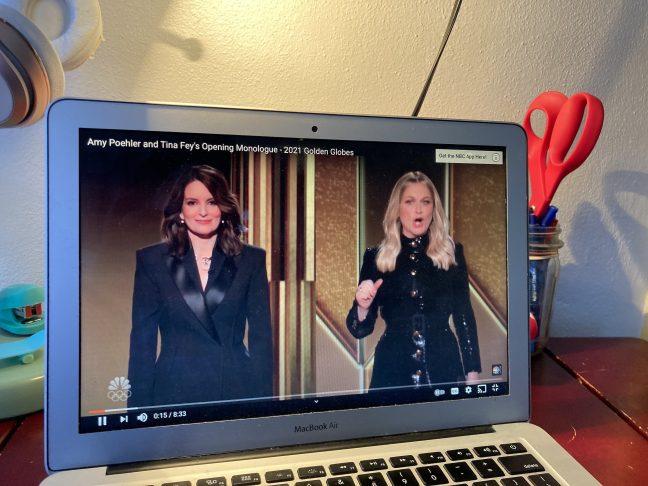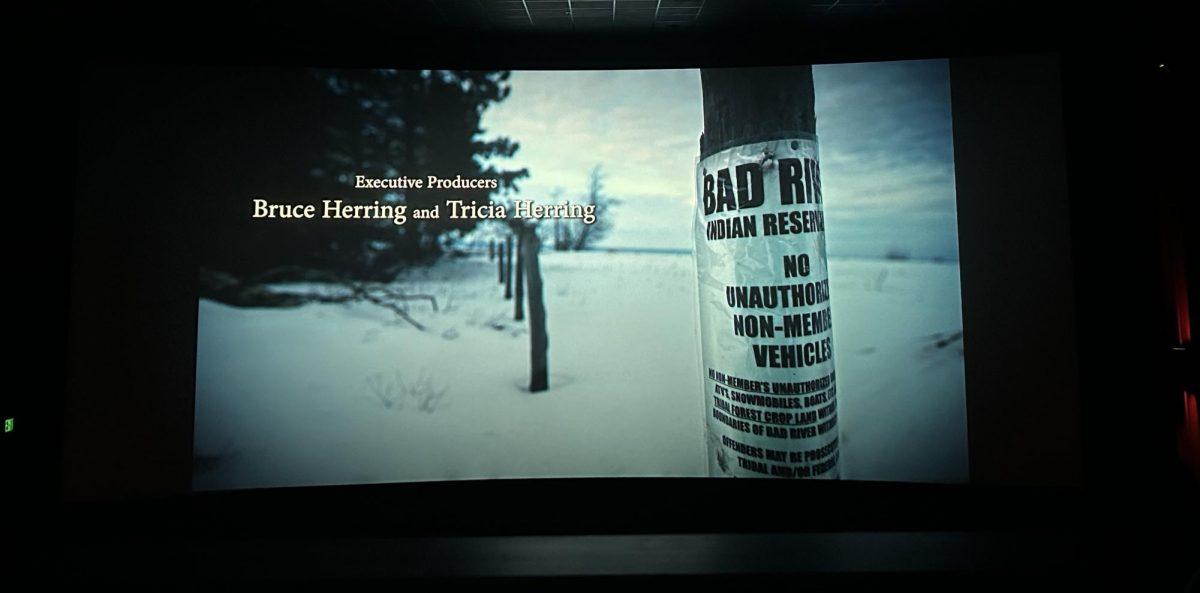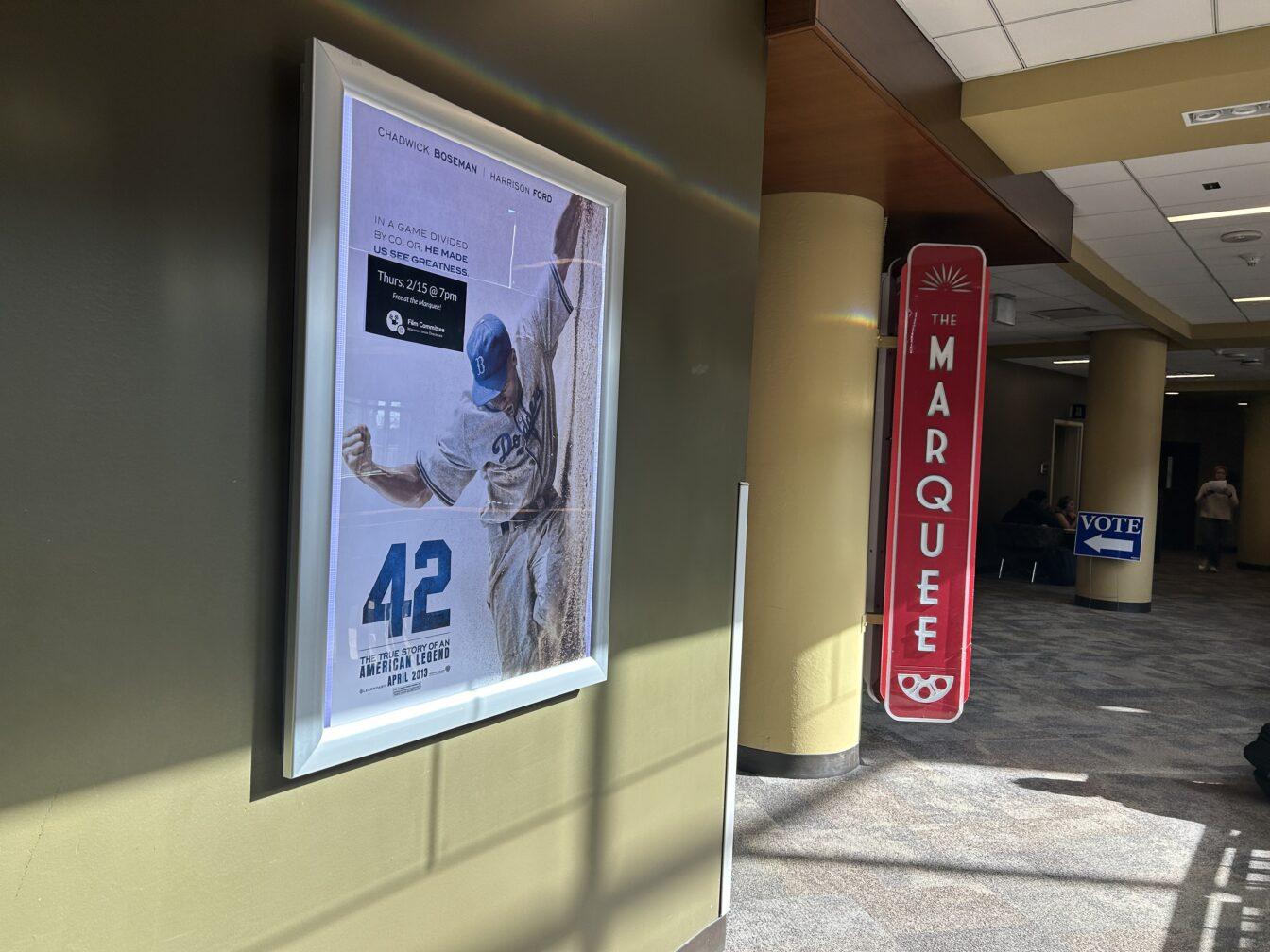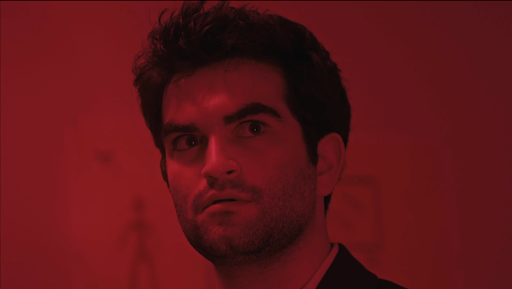Directed by Steven Spielberg, “The Post” combines themes of risk and resilience to tell the story of Washington Post publisher Katharine Graham (Meryl Streep) and her editor Ben Bradlee (Tom Hanks), and their risky decision to release sections of the Pentagon papers to the public.
Within the walls of a newsroom, suspense builds mostly through interactions between the conservative albeit cunning female publisher, and her chain-smoking, hard-hitting male newsroom.
Streep made a complete transformation for this role, from a celebrated figure in Hollywood to the inquisitive, at times meek publisher taking careful steps in a male-dominated industry. Through diligent research and soul-searching, Streep approached the role by first emulating and understanding Graham’s motivations.
“So if I can get to that space of not being certain that I can load in another person’s cares and worries and dreams and who they are and in this case, I had the gorgeous autobiography that Katharine Graham wrote,” Streep said.
‘The Post’ to bring story of the U.S.’s first female publisher to theaters
Self-described as her “bible” while preparing for the role, Katharine Graham’s nearly 700 page Pulitzer Prize-winning autobiography served as inspiration for Streep’s on-screen persona, along with personal discussions with past colleagues and assistants of Katherine Graham.
“It’s so introspective, so layered, so compassionate and tough on herself, and the way it identifies a certain time when the highly educated, wealthy women’s only expectation would be, as she says in her book, ‘to make her husband comfortable and her children as well,’” Streep said. “That she would be delivered into this moment in history and have to make a pivotal decision that would affect the entire country and the progress of the government’s attempt to control the press, that her one decision would really direct history in one good direction.”
Self-described as his latest feminist project since his 1985 release, “The Color Purple,” Spielberg aimed to tweak mainstream understanding of the events leading to the release of the Pentagon Papers by putting the narrative of the woman in charge at the forefront, instead of her male reporters as seen in films like “All the President’s Men.”
Streep’s powerful performance is also heavily supported by the work of her co-stars, including not only Hanks but also Alison Brie, Sarah Paulson and Bob Odenkirk. In a movie carried heavily by its dialogue, the actors embody their roles to portray the weight of the historical moment.
“You get ready in your own thing, you know, you got the hair of the character and you have the right shoes and you got the right everything,” Streep said. “But you arrive on the set and there is the force field of what your partner gives you and brings you and he is so preternaturally alive and alert and it’s very very exciting to work with Tom because that quality of listening and playing off of changes, small changes in the thing, it just makes it fun and it’s only with the very very best actors that you have that, right.”
Conversation Starter: Staydream hopes to make Madison next major production city
Streep and Hank’s screen presences are magnetic, as they feed energy to one another through every line. But beyond stage makeup and expertly written lines, originally by Liz Hannah, on-screen chemistry still stands out as a highlight of the project.
Relying heavily on one another, Streep and Hanks bring different and sometimes conflicting energies to each scene — developing a back-and-forth conversation that feels on-its-toes and natural.
“So it’s not just marks and dialogue, but it is the theme of the movie that you’re engaging in, but also the very particulars of the other characters that you’re reacting against,” Hanks said. “I mean, Uta Hagen says one of the great things about acting is … that acting is reacting, well it’s also behavior and procedure and that is always shared with somebody else on screen.”
Through chemistry on and off the screen, Streep and Hanks shape an almost comical, but realistic, unlikely duo. As Hollywood veterans with unfaltering admiration for one another, the co-stars had nothing but praise to share.
“The most exciting moments in a scene with Meryl are the pauses that she puts in and you’re wondering what’s going to come out on the other side and they’re never the same,” Hanks said.
‘Lady Bird’ transports viewers to 2002 with a story of adolescence, motherhood
Whereas Hanks admired Streep’s affinity for drama, Streep noted Hanks’ brilliant comic sensibility, and his ability to give viewers the “sense of something secretly funny” even in serious scenes.
With the mindset of “reacting” instead of “acting,” the actors complimented each other in ways reminiscent of live theatre, according to Spielberg.
“When you see a play, if you see a play every day that week including the two matinees you will see an entirely different play each time,” Spielberg said. “That’s because the characters feed into each other and they inspire each other and they just raise the bar on each other constantly whether it’s a movie or on stage in live theater.”
Fighting the clock — and the New York Times — Graham and Bradlee grappled with the decision to risk not only losing their publication and livelihoods but also risk potential arrest.
“The Post” depicts this decision as a choice between truth and safety — to expose years of governmental and presidential lies or to retain the status quo. When Graham and her staff prioritized truth over even their own safety, they set in motion a change, both in investigative journalism norms and norms surrounding the roles of women.
“We went right to Watergate from there and we went to a world in which women had many many more opportunities and doors opened than when she came to that position,” Streep said.
The Washington Post faced resistance from institutional and internal forces but still revealed government secrets spanning four presidents — a testament to the power and importance of truth. For this reason, Spielberg — along with many viewers — were drawn to the film to begin with, Spielberg said, along with its cultural relevance after our most recent election.
“It was an authoritarian impulse of Nixon’s to try to turn his Democratic presidency into an authoritarian rule by ending any criticism from the free press by going to the courts and stopping them from publishing these papers and I just felt a calling,” Spielberg said. “I think all of us did … this is a story that gee is vaguely familiar to all of us in this day and age…”
“The Post” manages to respect the historical events within their own cultural and political contexts of 1971, while also acknowledging connections to the U.S.’s current political climate at large.
With lines such as, “it is hard to say no to the president,” some viewers have noticed the almost uncanny connection to President Trump, and his distrust and push back against the media and “fake news.”
“I actually think [Trump] may really like ‘The Post,’ weirdly, because it is a great movie and it is a patriotic movie,” Streep said. “Yeah, and what effect would I hope it would have on him? Well, he would stop the shenanigans and give some respect for people who are operating on their principles and not on their appetite.”
“The Post” serves as an accurate glimpse into history, and a piece of not-so-subtle social commentary, simultaneously.








